By Sierra Lauder
Director of Events and Downtown Development
I’m breaking out of my usual downtown role to share some Chamber news about an event series that is especially close to my heart, the “How It’s Done” series. The Chamber Board cooked this up during the 2018 strategic planning session, and we have now held two events in the series; one last fall at Pacific Seafood in Bay City, and one earlier this month at the Port of Tillamook Bay. The goal of the How It’s Done series is to provide a space to talk about different facets of the realities of economic vitality in an on-the-ground forum through the lens of a particular industry.
Sound esoteric, lofty, idealistic, and hard to imagine?
I’ll break it down: we get a behind the scenes tour and talk real talk about what it means to do that business – including the hard stuff. At Pacific Seafood, we talked at length about how tough it is to get and keep employees, and the variety of experiments that have been tried (some with more success than others) to keep things going in Bay City. We also learned that Pacific Seafood is more than seafood harvesting and yummy oyster platter; they have a huge distribution operation that includes all kinds of meat – not just seafood.
The operation in Bay City is only the smallest glimpse of their corporation, and from their Portland roots they have expanded into 41 states with more than 3,000 employees. The jobs that are available in the Tillamook location are diverse, requiring a variety of skill levels and schedules, and as an employer they recognize that housing and transportation are often major barriers to finding and retaining employees year round. During our tour of Pacific Seafood, we heard from other employers in other industries as well as representatives from the employment department and the robust discussion led to shared ideas and collaboration. Problem not solved, but new relationships were forged and we are confident that solutions are built out of teamwork.
At the Port of Tillamook Bay, an entirely different conversation was had. POTB hosts the majority of the industrially-zoned land in the county, has more than 250 tenants, and, in addition to being a successful business incubator, is a critical piece of the resiliency planning effort. Additionally, there is a commercial airport located at the Port where an estimated 3,500 flights take off and land each year.
There is a new lease in place on the digester out at the Port, and the Tillamook PUD has a purchase agreement in place to purchase the power created there and distribute it over the local grid. This new “Green Power” program that is available through the PUD is an opt-in option and PUD customers have the ability to buy varying percentages of their residential or commercial power as “Green Power.” The digester is run by processing local dairy waste, creating a huge opportunity for farmers to process that waste more efficiently; a significant benefit for another local industry. The company who has leased the digester and resumed operations is called BioGas, and they are looking at expanding the DEQ permitting, which would allow for additional compostable materials to be processed through the digester for power conversion; the possibilities are great. The Chamber is joining the TCCA and the Port of Tillamook Bay as purchasers of Green Power, and if you are interested in learning more about the options, you can call the PUD at (503) 842-2535 or visit their website: tpud.org.
We love these conversations; our business is business after all. Currently we are scheduling How It’s Done tours just a couple of times each year, and (due to limited space) we offer reservations to Chamber members and potential members first. If you have an idea for How It’s Done or would like to learn more about the series, we welcome you to pop by Chamber Headquarters, give us a call at (503) 842-7525, or send me an email: Sierra@tillamookchamber.org. Hope to see you soon!
